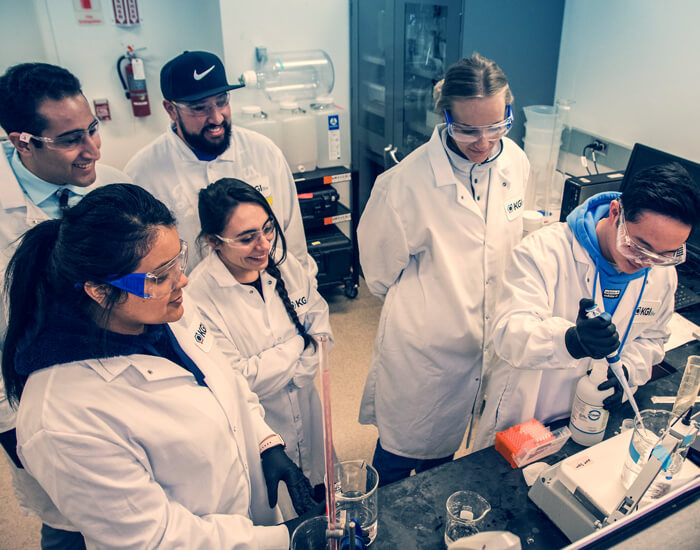Chemical engineering is a broad category that covers a variety of fields—and it’s one that you can make decent money in, with a median salary of $105,550. The industry is expected to grow by 14% between 2021 and 2031.
This type of engineering revolves around chemical production and creating products using chemical processes. Read on to learn more about this field and what career paths you can go on with your chemical engineering degree.
What Is a Chemical Engineer?
Chemical engineers take the principles from such fields as chemistry, physics, biology, and math to innovate new products. There are opportunities in several different industries, especially in biotechnology and pharmaceuticals. The chemical engineer will help those facilities that use enzymes and microorganisms to synthesize new drugs. This industry is such a broad category that it’s often referred to as “biotechnology.”
Traditionally, people who study chemical engineering end up on the career path for the oil and gas industries, but going into the biotechnology and pharmaceutical industries are also excellent career paths for you to consider.
What Degree Do You Need to Become a Chemical Engineer?
One of the most appealing things about going into chemical engineering is how broad the area of study is in this field. At a minimum, you need a four-year degree to get into this industry. In many cases, you can get a job in the industry right after you graduate. However, for better opportunities, you can advance your career by taking graduate courses in chemical engineering.
In your classes, you will not only take chemistry courses, but you will also take classes in math, kinetics, biology, and physics. There is hands-on training in the lab, as well as classroom teaching throughout your education.
What Jobs Can You Get With a Chemical Engineering Degree?
There are many different industries that you can find jobs in with your chemical engineering degree, as it is such a broad category. These career paths include
Environmental or Healthcare Engineer
Several firms within this sector hire people with chemical engineering degrees. In this sector, you could help the environment by finding ways to minimize waste and pollution.
Biotechnology
With this industry, you will work with medical research institutes and pharmaceutical companies to develop new vaccines, experimental treatments, drugs, and potentially artificial organs. They can study, research, and take those principles of biology and use biological approaches to create new treatments.
Food Scientist
This industry requires the chemical engineer to evaluate the flavor, texture, color, and nutritional value of food. The goal of the chemical engineer in this industry is to test food samples, produce new products, and make sure that these items meet the stringent standards set by the government.
Check out our blog, How to Become a Biotech Engineer.
Getting the Right Degree to Enter the Biotech Industry: KGI
Are you studying chemical engineering as an undergrad so that you can enter the biotechnology industry? If so, Keck Graduate Institute (KGI) offers a master’s program that helps you to achieve your career goals. Our Master of Engineering in Biopharmaceutical Processing equips students to help millions of patients and enter dynamic careers in biotechnology.
To learn more about careers you can have with a degree in chemical engineering, download our career guide, There’s More to Medicine Than Meets the Eye: Your Guide to a Career in Healthcare and the Life Sciences.
To connect with us, request more information today.





